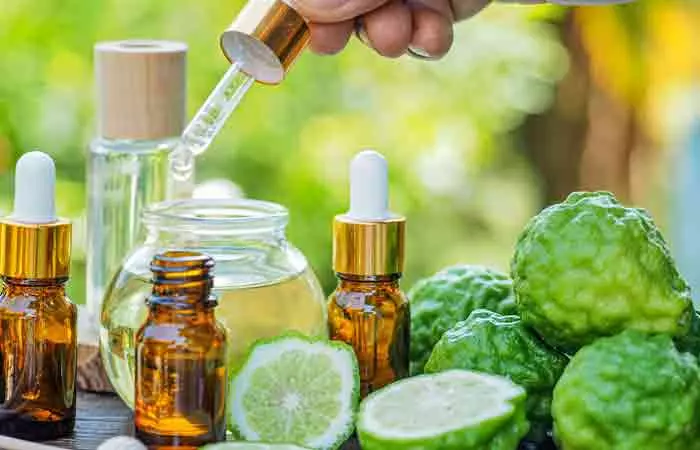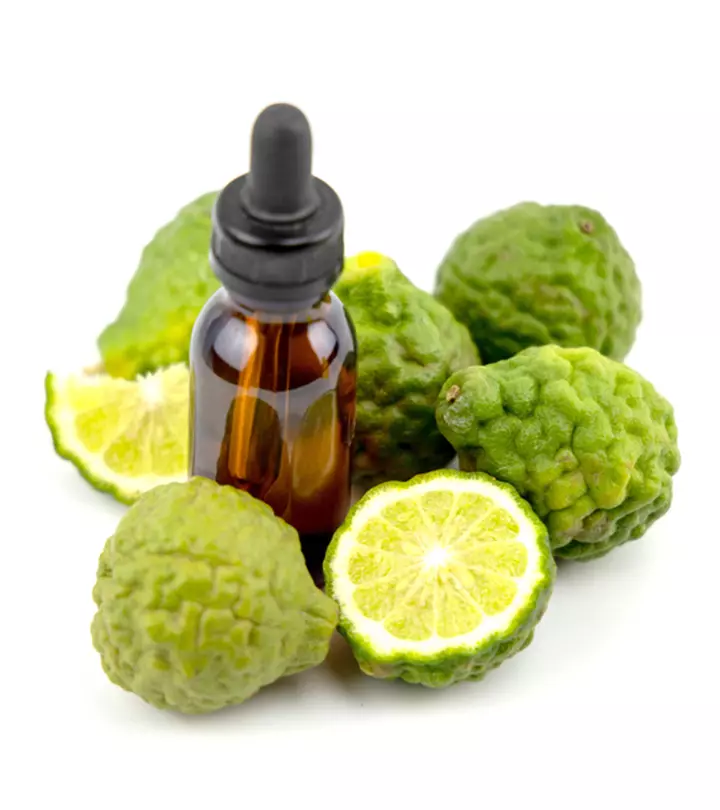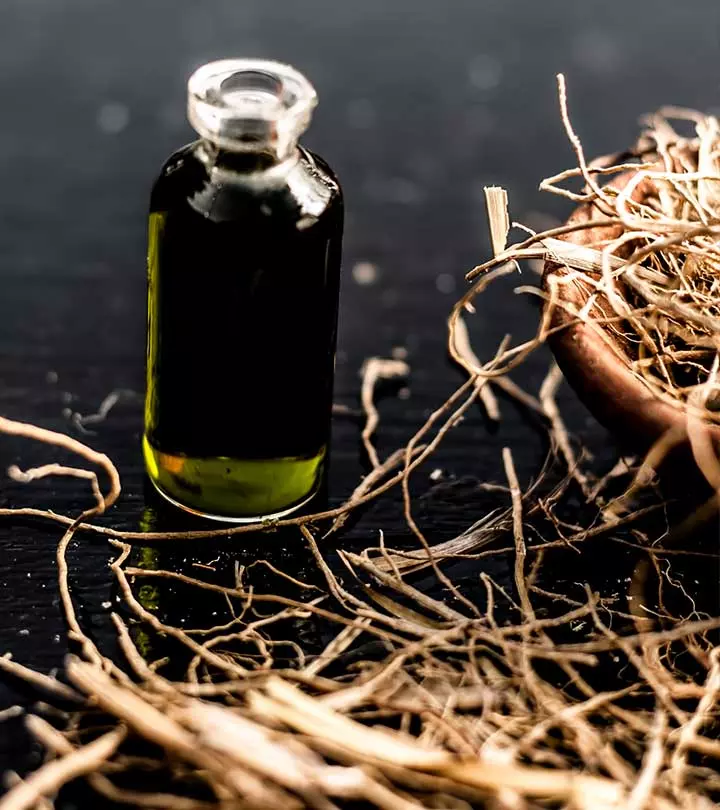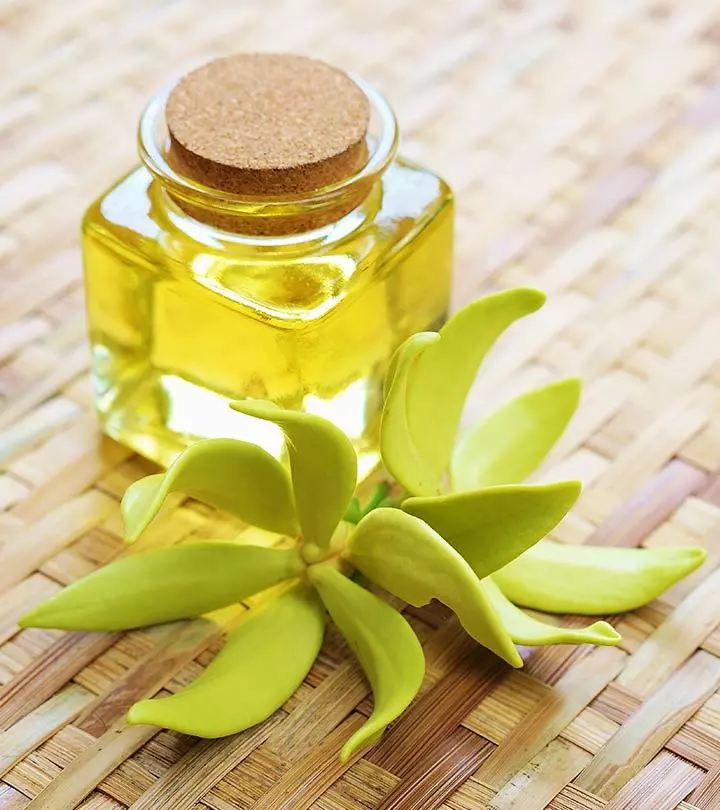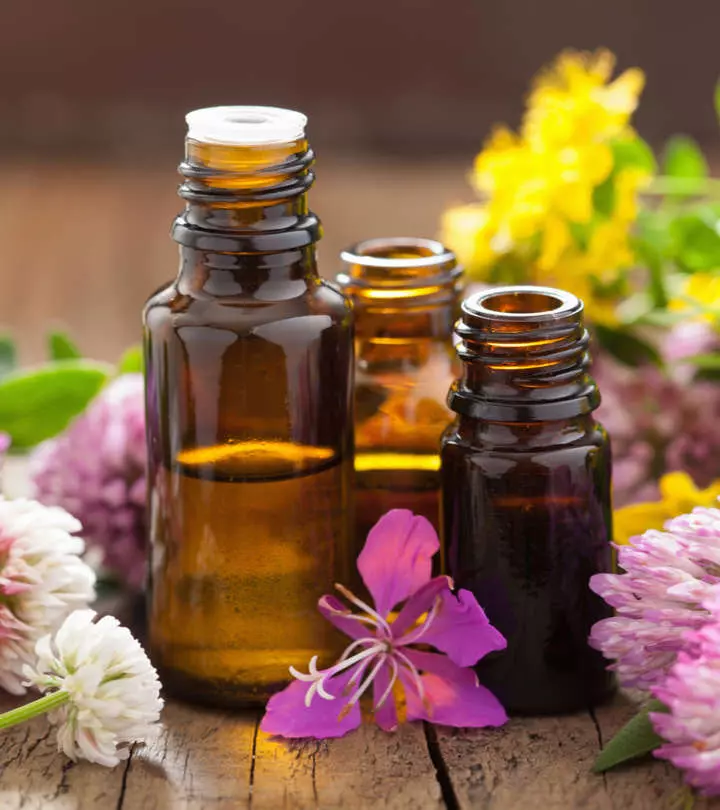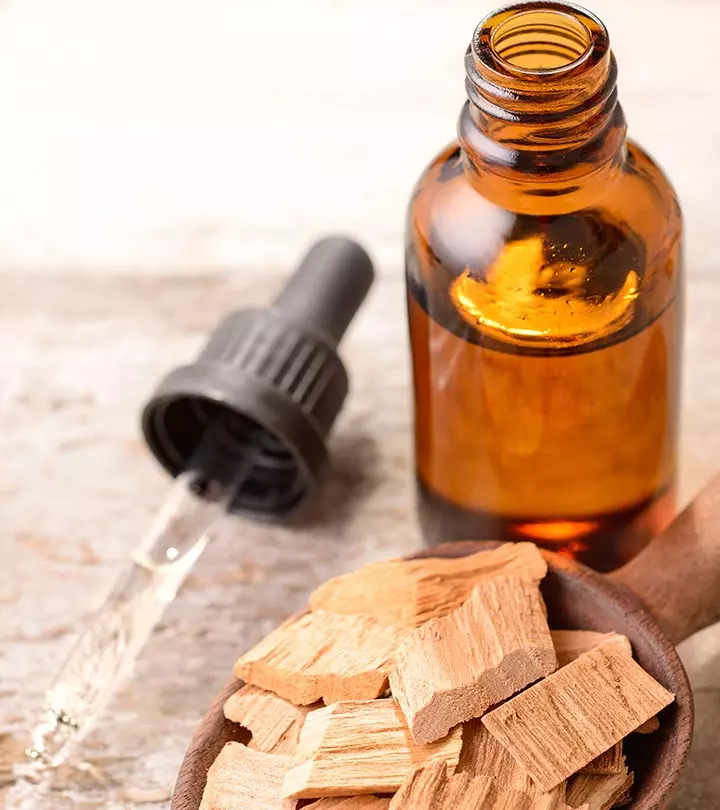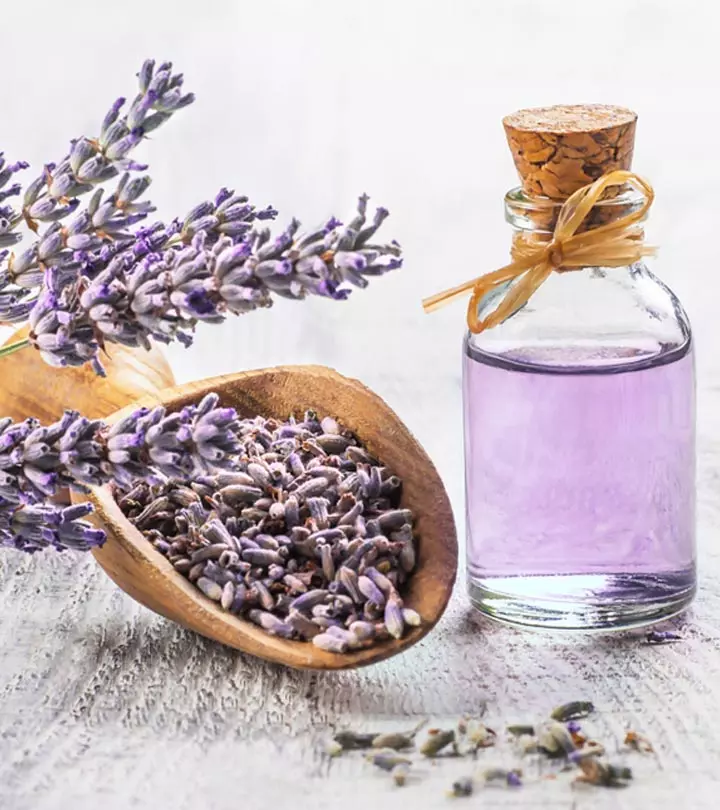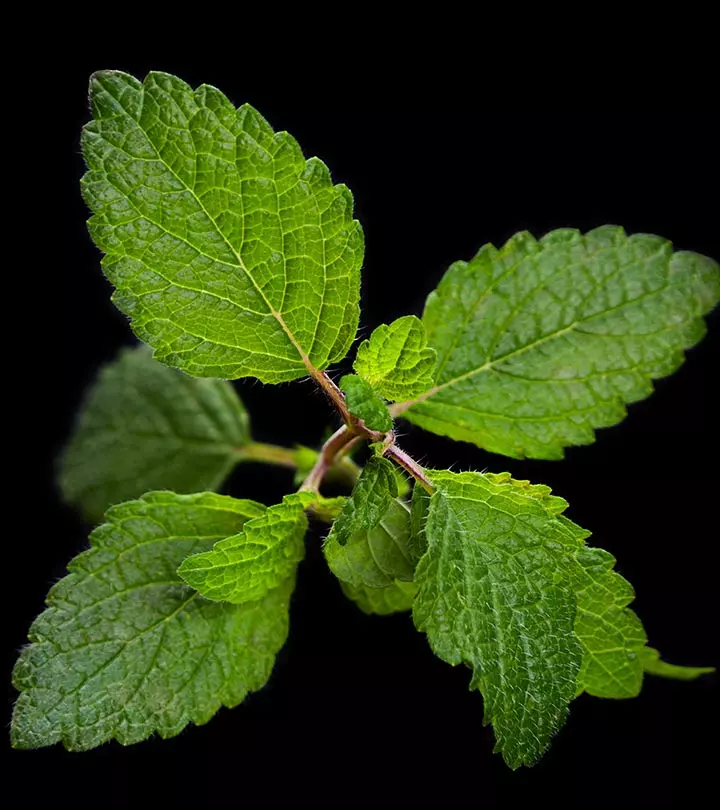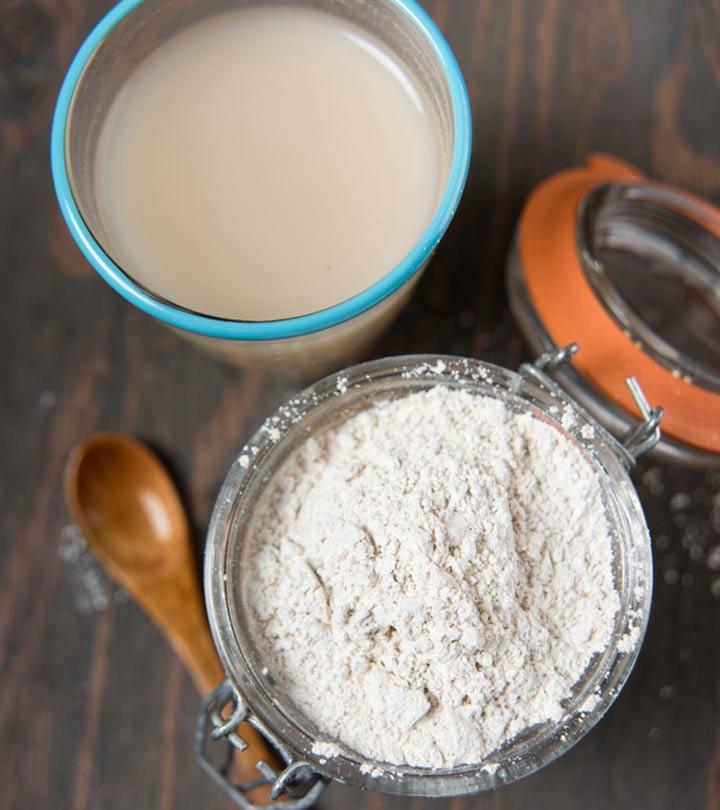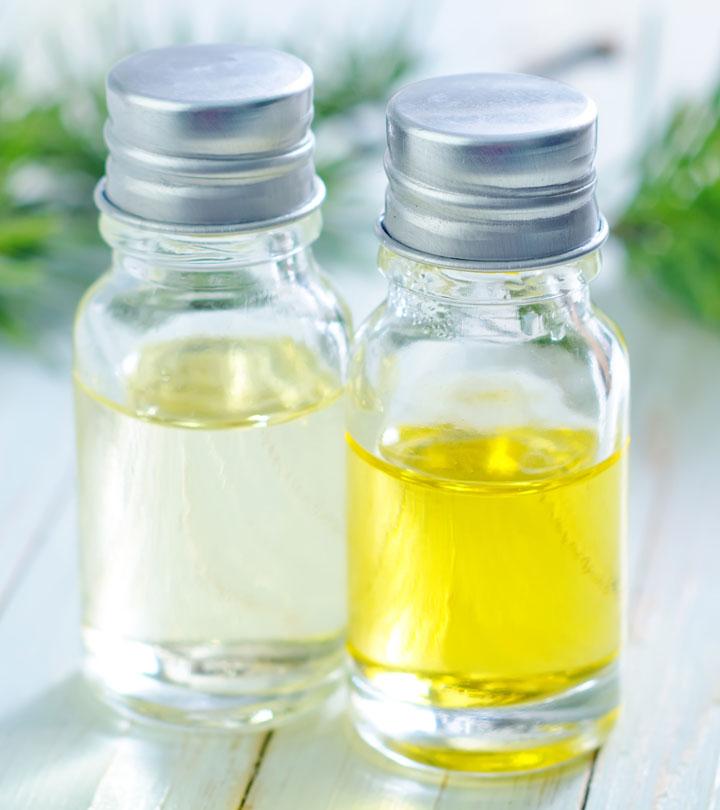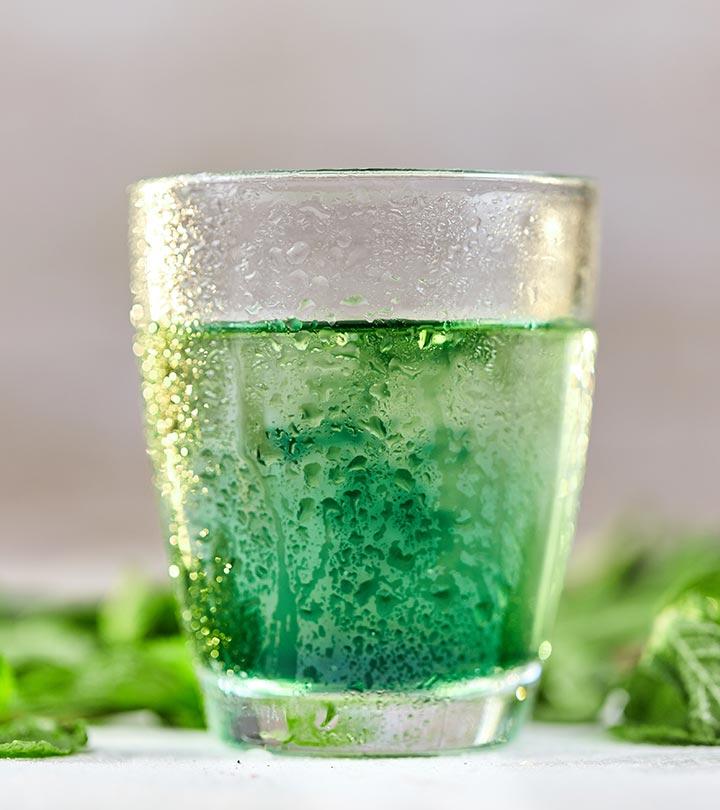7 Bergamot Essential Oil Benefits, How To Use, & Side Effects
This fragrant oil could be the key to luscious locks, improving sleep, and relieving anxiety.
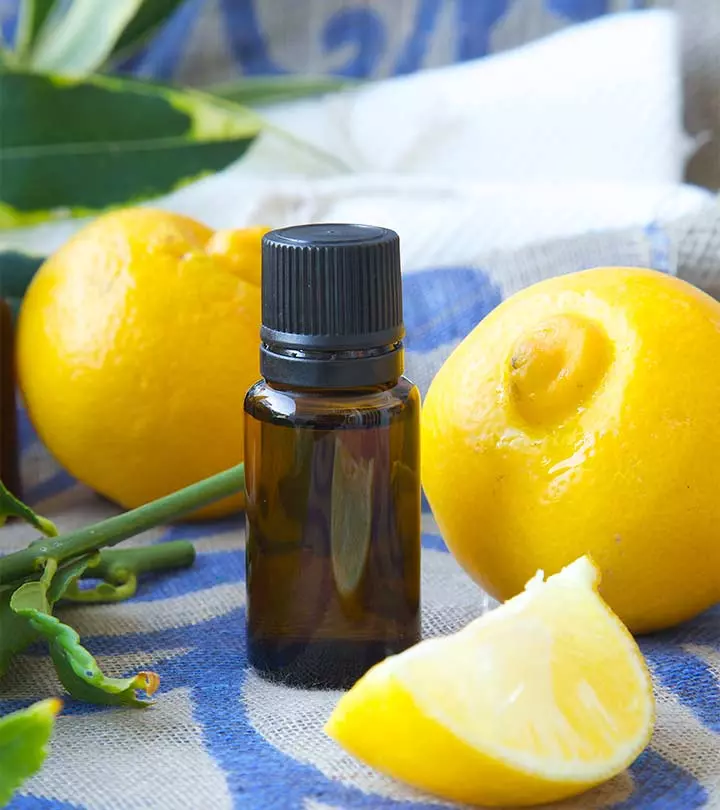
Image: Shutterstock
Bergamot essential oil is popular for its therapeutic effects and is traditionally used in folk medicine and Ayurveda. This oil has become a common sight in the spa industry for its de-stressing and pain-relieving effects. Besides, bergamot oil is also commonly used in aromatherapy, given its potential to promote sleep and treat anxiety. It can also be applied to the skin topically along with a carrier oil.
This article sheds light on the important benefits of bergamot essential oil, how to use it, and its potential side effects. Keep reading.
 Know Your Ingredient: Bergamot Oil
Know Your Ingredient: Bergamot OilWhat Is It?
An essential oil derived from the rind of the bergamot citrus fruit.
What Are Its Benefits?
May promote hair growth, alleviate inflammation, relieve pain, heal wounds, improve mental health, and reduce hypertension.
Who Can Use It?
Anyone can use it in the right concentration.
How Often?
Daily, in the recommended concentration.
Caution
May interact with diabetes medication, causing excessively low blood sugar levels. It can also lead to skin irritation and phototoxicity.
In This Article
What Is Bergamot Essential Oil?
This essential oil is derived from bergamot, a citrus fruit from the family of Esperidea (also called Rutaceae). The fruit resembles a lemon and is known by the botanical name Citrus bergamia. The oil is extracted from its rind (peel). The fruit is named after a place called Bergamot in south Italy, where it is extensively grown. However, bergamot oil originates from Asia.
Citrus bergamot tree, a result of the crossbreeding of lemon and orange trees, has large oval-shaped leaves similar to those of lemon trees. The properties of bergamot oil are very similar to those of orange oil, which also has therapeutic effects. The oil is known for its distinctive aroma, and is used for making cosmetic products, natural deodorizers, and massaging products. It is also used in natural remedies for the treatment of several diseases.
 Trivia
TriviaWe are equipped with the knowledge of what bergamot essential oil is, but you might be wondering what it smells like. Let’s find out in the next section.
What Does Bergamot Essential Oil Smell Like?
Bergamot essential oil has a distinct citrus smell with floral and spicy notes. Its aroma is often described as fresh and sweet. It has various medicinal uses and is commonly used in aromatherapy to create a pleasing and uplifting atmosphere.
Bergamot oil is said to offer an array of health benefits. What exactly are they? What does science say? Let’s find out in the next section.
Benefits Of Bergamot Essential Oil
1. May Promote Healthy Hair
Bergamot essential oil was tested on rat feet edema to check its antioxidant, anti-nociceptive, and anti-inflammatory properties. The graph shows the increased free radical scavenging activity of bergamot oil, which is higher in increased concentrations. 10% bergamot oil was most effective to inhibit free radicals.
Antioxidant Activity Of Bergamot Essential Oil
Source: Mechanisms Underlying the Anti-Inflammatory Activity of Bergamot Essential Oil and Its Antinociceptive EffectsBergamot essential oil may help boost collagen levels in the skin and promote hair growth due to its high antioxidant content. Topical application of bergamot extract for 42 days was found to improve hair growth in mice significantly. However, more studies are needed to confirm the effectiveness of bergamot oil in humans (1).
2. May Reduce Inflammation
Bergamot essential oil contains linalool and carvacrol, which have anti-inflammatory and analgesic (pain-relieving) properties (2 ),(3). According to research, bergamot oil and its major active components – limonene, linalyl acetate, and linalool– have anti-inflammatory, immunomodulatoryi A class of drugs that suppress or modify the immune system and help the body prevent inflammation, infections, and other diseases. , and wound-healing properties (1). This oil can be a good choice for treating chronic muscle pains.
3. May Promote Sleep
Studies link poor sleep quality with hypertension (4). Aromatherapy with bergamot essential oil or its topical application was shown to reduce blood pressure and improve mental health (1). Moreover, a study found that aromatherapy with a mixture of lavandin super, bergamot, and ylang ylang oils had significantly improved sleep quality in cardiac rehabilitation patients. However, more research is warranted to understand if bergamot oil alone can promote sleep (5).
4. May Reduce Anxiety
Research suggests that bergamot essential oil has neuroprotective and anxiolytici A class of drugs that help lower the level of anxiety-causing agents (anxiogenic) used for treating anxiety and panic disorders. effects and may help reduce stress-induced anxiety through aromatherapy. This is particularly significant as drugs prescribed to treat anxiety and mood disorders are often associated with severe adverse effects. However, more studies are warranted to understand this benefit of bergamot oil in humans (6).
Anecdotal evidence also suggests that a head massage using this oil may help relieve stress, clear toxins from the brain, and enhance cognitive abilities like memory and concentration. These qualities may also help treat headaches.
Laurenina, a health and wellness blogger, shared how certain essential oils such as bergamot have helped manage her anxiety. She said, “I’ve also found a lot of support in Bergamot – I have added to baths along with Epsom salts and applied to my pulse points on days where I know I have a lot to tackle (i).”
5. May Reduce Stress
Bergamot essential oil may promote stress relief and improve positive feelings. In a study, 57 participants from a mental health treatment center reported positive feelings after a mere 15-minute exposure (inhalation) to this oil. The results suggest that aromatherapy with bergamot essential oil may be an effective adjunct treatment to treat mental health issues (stress, depression, etc.) and promote well‐being (7).
6. May Help Prevent Food Poisoning
Linalool, a compound found in bergamot, may effectively kill bacteria that cause food-borne illness. Different formulations of bergamot were found to impede the growth of numerous bacteria that cause these illnesses. Of the essential oils tested, bergamot oil was found to be the most effective while linalool was shown to be the most effective antimicrobial component. Hence, bergamot oil may help effectively combat the growth of common causes of food poisoning (8).
7. May Help Lower Cholesterol Levels
Bergamot essential oil contains compounds such as rutin, naringin, and neoeriocitrin that possess antioxidant properties and provide protection from oxidative damage. These constituents also inhibit the oxidation of LDL particles and inflammation in the arteries. In addition, bergamot contains compounds that inhibit enzymes involved in cholesterol synthesis in the body (9).
 Did You Know?
Did You Know?Bergamot essential oil can be used as a flavoring agent in foods and beverages. What other uses does it have? Read on to know.
How To Use Bergamot Oil
1. Blend With Vanilla
Bergamot oil and vanilla are a popular combination that can be used in many ways as listed below. (The thick consistency of vanilla absolute oil makes it unsuitable for aromatherapy. Instead, heat it to soften and turn it into a liquid).
- The combination has a smoky fragrance suitable for baking.
- Use the blend to make perfumes, soap bars, and various other toiletries.
- Dilute and use as an air freshener.
2. Blend With Essential Oils
The use of bergamot oil in combination with other essential oils may promote feelings of uplift, relaxation, and confidence. Choose the essential oil you prefer to get a unique soothing aroma. Here are a few popular essential oils that can be used with bergamot oil.
- Lavender Oil: A diffusion containing lavender and bergamot oils creates a calming and classic scent. Hair and skin care products often have this combination.
- Tea Tree Oil: The bergamot and tea tree oil blend gives you a soothing and uplifting effect. It may help soothe skin inflammation and is used for combating acne.
- Chamomile Oil: Chamomile oil infused with bergamot essential oil is popularly used in aromatherapy. It can be soothing in tea or can also be applied to the skin after diluting it.
Note: Do not apply bergamot directly to the skin. Mix it with carrier oils.
Bergamot essential oil is highly effective whether used alone or in combination. However, it may expose users to certain mild to moderate side effects. We discuss them in the following section.
Side Effects Of Bergamot Essential Oil
Skin irritation is one of the most common side effects of bergamot oil. It may cause allergic dermatitis when not combined with a carrier oil. Moreover, it can make the skin more sensitive to the sun when applied topically and cause sunburn. Bergapten, a compound found in this oil, was found to cause this phototoxic effecti It refers to the skin’s response after being exposed to toxic chemicals and harmful rays of the sun. (10),(11).
Is it safe to use bergamot oil if you are on medications? Does it interfere with any drugs? Know more in the following section.
Does Bergamot Interfere With Any Medications?
Note: The following drug interactions with bergamot oil are based on anecdotal evidence and not backed by scientific evidence.
Anesthesia
Patients who have undergone surgery may experience increased complications with the use of bergamot essential oil. This is because the anesthesia’si A perioperative procedure (during or at the time of an operation) that involves artificially inducing pain insensitivity in patients. interaction with oils that contain sedative properties may not be safe. However, these concerns are not backed by research, and quality studies are warranted.
Antidepressants
Anecdotal evidence highlights the concerns of using bergamot essential oil and antidepressants together. The bergamot oil mixture containing clove oil or nutmeg oil may result in blood pressure changes, tremors, and confusion. The individuals on antidepressants like MAOIs (monoamine oxidase inhibitors) or SSRIs (selective serotonin reuptake inhibitors) should not use this oil. Besides, chemical compounds like farnesene and alpha-bisabolol present in this oil may significantly increase the effects of antidepressants.
Diabetes Medicine
Blood sugar levels may drop too low when bergamot essential oil is taken with diabetes medications. Hence, monitoring blood sugar levels is advised.
Infographic: 6 Reasons To Start Using Bergamot Oil
Now you know all the natural healing and therapeutic properties that bergamot has to offer. It has a profound impact on physical, mental, and emotional health. The following infographic sheds light on this remarkable essential oil’s 6 most potent properties. Check it out!

Illustration: StyleCraze Design Team
The benefits of bergamot oil are numerous. This essential oil can promote healthy hair as it is rich in antioxidants. It has analgesic and anti-inflammatory properties. In addition, this oil is a mood enhancer and may promote sleep, reduce anxiety, and combat stress. Bergamot essential oil also helps in preventing food poisoning. You can blend this oil with other essential oils for topical application. However, there are a few side effects of this essential oil, which include skin irritation, allergic dermatitis, increased sun sensitivity, and drug interactions. Hence, caution is advised while using it.
Frequently Asked Questions
Can you mix bergamot and frankincense?
Yes. You can mix bergamot and frankincense. Bergamot mixes well with most oils and can add an uplifting note to frankincense.
Can you mix bergamot and eucalyptus oils?
Yes. You can mix bergamot and eucalyptus oils. Bergamot is considered a top note when blending with other oils.
Can you take bergamot oil orally?
The presence of bergapten (a natural substance) in bergamot may cause harm if consumed orally.
Discover the amazing benefits of bergamot essential oil! Watch this video to learn how it can help improve your health and well-being with just a few drops.
Key Takeaways
- Bergamot essential oil may improve hair health, soothe inflammation, promote sleep, reduce anxiety and stress, and prevent food poisoning.
- Blend bergamot oil with vanilla and essential oils like lavender, tea tree, and chamomile to use.
- If applied directly to the skin, it may cause allergic dermatitis, skin irritation, and sun sensitivity.
- Anecdotal evidence suggests bergamot may interfere with anesthesiai A perioperative procedure (during or at the time of an operation) that involves artificially inducing pain insensitivity in patients. , diabetes, medication, and antidepressants.

Image: Stable Diffusion/StyleCraze Design Team
Personal Experience: Source
StyleCraze's articles are interwoven with authentic personal narratives that provide depth and resonance to our content. Below are the sources of the personal accounts referenced in this article.
(i) A is for a n x i e t y…https://laurenina1985.wordpress.com/2018/06/14/a-is-for-a-n-x-i-e-t-y/
References
Articles on StyleCraze are backed by verified information from peer-reviewed and academic research papers, reputed organizations, research institutions, and medical associations to ensure accuracy and relevance. Read our editorial policy to learn more.
- Efficacy of bergamot From anti‐inflammatory and anti‐oxidative mechanisms to clinical applications as a preventive agent for cardiovascular morbidity skin diseases and mood alterations
https://www.ncbi.nlm.nih.gov/pmc/articles/PMC6392855/ - Analgesic-Like Activity of Essential Oil Constituents: An Update
https://www.ncbi.nlm.nih.gov/labs/pmc/articles/PMC5751100/ - Antimicrobial activity of essential oils and carvacrol and synergy of carvacrol and erythromycin against clinical erythromycin-resistant Group A Streptococci
https://www.ncbi.nlm.nih.gov/labs/pmc/articles/PMC4347498/ - Prevalence of Poor Sleep Quality in Patients With Hypertension in China: A Meta-analysis of Comparative Studies and Epidemiological Surveys
https://www.frontiersin.org/articles/10.3389/fpsyt.2020.00591/full - Trial of Essential Oils to Improve Sleep for Patients in Cardiac Rehabilitation
https://pubmed.ncbi.nlm.nih.gov/31556690/ - Bergamot Essential Oil Attenuates Anxiety-Like Behaviour in Rats
https://www.ncbi.nlm.nih.gov/pmc/articles/PMC6154596/ - Bergamot (Citrus bergamia) Essential Oil Inhalation Improves Positive Feelings in the Waiting Room of a Mental Health Treatment Center: A Pilot Study
https://www.ncbi.nlm.nih.gov/labs/pmc/articles/PMC5434918/ - The effect of lemon orange and bergamot essential oils and their components on the survival of Campylobacter jejuni Escherichia coli O157 Listeria monocytogenes Bacillus cereus and Staphylococcus aureus in vitro and in food systems
https://sfamjournals.onlinelibrary.wiley.com/doi/10.1111/j.1365-2672.2006.03035.x - Clinical application of bergamot (Citrus bergamia) for reducing high cholesterol and cardiovascular disease markers
https://www.ncbi.nlm.nih.gov/pmc/articles/PMC6497409/ - A study of oil of bergamot and its importance as a phototoxic agent. II. Factors which affect the phototoxic reaction induced by bergamot oil and psoralen derivatives
https://pubmed.ncbi.nlm.nih.gov/589995/ - Action spectrum for bergamot-oil phototoxicity measured by sunburn cell counting
https://pubmed.ncbi.nlm.nih.gov/8051317/
Read full bio of Rowinda Dimech
Read full bio of Ravi Teja Tadimalla
Read full bio of Payal Karnik








